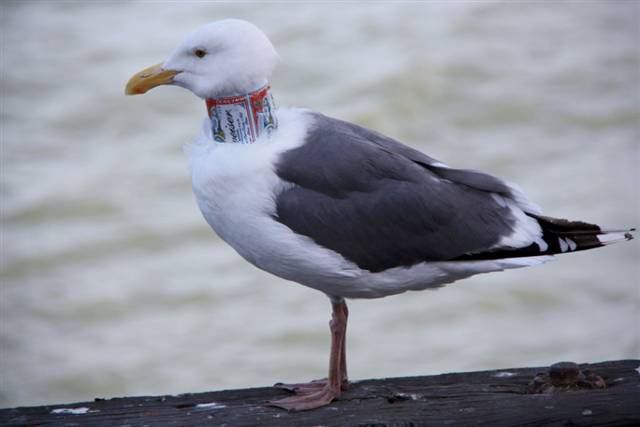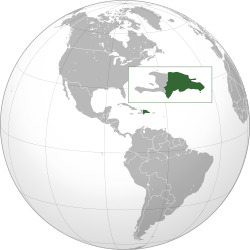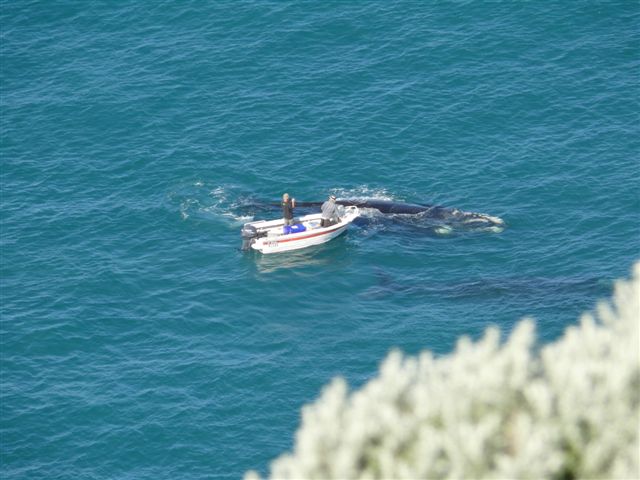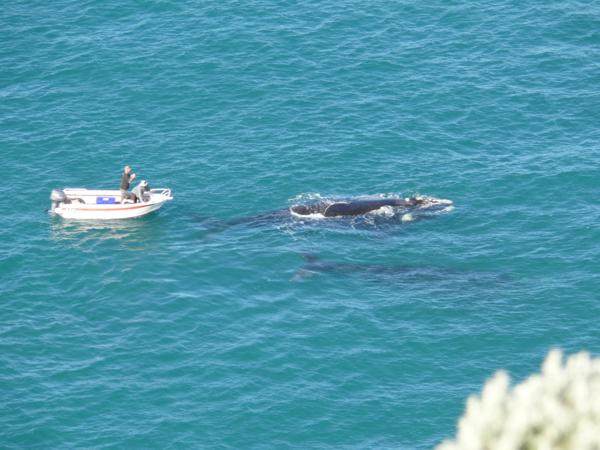Category Archives: Law & Law Enforcement
Russia Considering Ban on Exotic Pets: Crocodiles, and Penguins in the Cross Hairs
Exotic animals such as crocodiles, tigers and penguins may soon be disappearing from homes in Russia as parliament is considering a bill which would help cut down the number of animals which could be kept as pets.
Yevgeny Tugolukov, the chairman of the lower house’s natural resources committee, has commented that a pending bill on the care of animals may also include a list of animals which are “inadvisable to keep at home”.
That list of animals would include “exotic” animals such as crocodiles, snakes and monkeys which are rather popular amongst the people of Russia, but can also promote the spread of rather nasty diseases.
This bill was submitted to the State Duma this past Monday.
It will help to drive the responsibility of pet owners to take good care of their pets home, and is in response to a steep rise of cases of animal cruelty. However, there are very few cases of animal cruelty which actually make it to court.
The latest outrage, which helped to prompt the promotion of this new bill, was from a woman in the Urals city of Yekaterinburg, who had kept a rare Amur tiger in a cage. However, the biggest outrage comes not from the crime, but from the punishment. She is expected to pay a “hefty” fine of 2,500 rubles or about 80 US dollars.
Russia is known as being a nation filled with pet lovers, and Prime Minister Vladimir Putin is no exception. His rather extensive group of pets was just recently made larger by a Karakachan puppy, which was a thoughtful gift from Boyko Borisov. While the gift may not have done anything to improve politics, it did bring a smile to his face.
G20 Summit Recruits Top Notch Security…. Goldfish???
That’s right.. The new team which has been charged with looking out for the safety and wellbeing of the representatives of the G20 summit are six goldfish.
The people in charge at the Convention and Exhibition Center in Seoul, South Korea, have sworn in this “seal team” of fish to help keep tabs on the purity of the water in the bathrooms of the facility, in the hope that they will be able to sound the alarm if something is fishy.
Oh Su-Young, who heads up public relations for the venue, has told the AFP that the crack team of goldfish are being utilized as part of the process of inspecting the venue before the representatives arrive for the G20 summit, adding: “The fish also symbolize an eco-friendly water policy, which recycles used water for restrooms.” There was no mention made of exactly where this recycled water came from..
One of the people who will benefit from the efforts of these goldfish is British prime minister David Cameron when the summit takes place this 11th and 12th of November.
However, this is not the first time this year where animals have been trained and put to good use for the safety and wellbeing of our world leaders.
During the Commonwealth Games in Delhi, the police force of India scooped up monkeys and trained them to run regular patrols in the athlete’s village as well as the venues of the event.
These unlikely bouncers with long tails were meant to protect spectators and athletes alike, from the notorious Bonnet monkey, which supposedly holds a grudge against us humans.
Seagulls Found with Beer Cans Around Their Necks: $2,000 Bounty Issued!
Now this is just plain odd, cruel, and inhumane… A wildlife group has been made aware of a strange and brutal incident going on in the San Francisco Bay Area.. Someone has been going around and putting cut beer cans around the necks of seagulls!
They have stepped up, and said the person, or persons, responsible must be caught, and have even thrown in a $2,000 bounty.. Though they have not released if it was a “Dead or Alive” bounty…
It was reported by the WildRescue of Monterey, California that two such birds have been seen wandering around Half Moon Bay, Fisherman’s Wharf and Alcatraz Island.
The group has pleaded that the public be on the lookout for more of the poor creatures:
“Instead of attempting to capture the birds, which can make them more wary and harder to catch, sightings should be reported immediately to a dedicated paging service 831-429-2323 or emailed to rescue@wildrescue.org,” the group put out.
WildRescue has commented that it has also alerted the U.S> Fish and Wildlife Service.
“This is a federal crime punishable by severe fines, imprisonment, or both,” explained WildRescue’s spokeswoman, Rebecca Dmytryk.
The $2,000 reward, it is hoped, will help to give some added incentive for finding the people responsible.
“I feel pretty confident that if word gets around, we’ll be able to find the birds and help them,” Dmytryk commented.
So there you have it.. Whoever you are, your “beer can collar” days are coming to an end…
Boat Captain Facing 50 Large in Fines For Violations of Fishery Laws
A boat captain from the Dominican Republic has to pay some $50,000 in fines after he and his 28 crewman pleaded guilty to numerous infractions and violations of fisheries law.
Captain Eduardo Diaz and his 28 member crew were brought before Deputy Chief Magistrate Carolita Bethel yesterday. They literally had the book thrown at them in terms of violations. They were charged with engaging in foreign fishing, possession of prohibited apparatus, posession of undersized crawfish and grouper.
The court dockets state that on the 11th of October the men were discovered fishing in waters belonging to the Bahamas, aboard the small fishing boat “Adrian I”
The fishing boat was caught by a Cutter with the United States Coast Guard to the east of Ragged Island in the Columbus Bank.
It was reported that the men were carrying quite an odd assortment of illegal things such as nine air compressors, nine spear guns, a large portion of undersized crawfish and some one and a half tons of grouper which weighed less than two kilograms each.
The captain and crew of the “Adrian I”, with the aid of a translator, plead guilty to all charges laid against them. Magistrate Bethel went a little more lenient on them than the circumstances provided for, as they did not waste any of the court’s time.
Diaz, being the captain, was given a choice; cough up the $50,000 fine, or spend a year in jail, his crew was immediately deported, and all equipment confiscated. There was no mention as to whether he would get to keep the “Adrian I” or not, but one imagines he might sell it to pay for the fine.
Fisherman Gets Sent Up the River For Taking Shot at Sea Lion:
A fisherman from Northern California who took out his frustrations on a sea lion last year, has just been sentenced this past Friday to one month in jail and to pay $51,000 in restitution.
Larry Allen Legans, the fisherman who decided to shoot the poor defenseless animal, was found guilty in a court of law os “intentionally maiming or wounding an animal”. Sgt. Nevis, the name given to the sea lion, was discovered back in November of 2009 with a life-threatening hole in his snout. It was such a bad wound that the sea lion couldn’t even put his head under the water. Luckily for Sgt. Nevis, there were marine veterinarians volunteers available to help take care of him.
Not only does Legans have to spend time in lock-up, he also has to pay restitution to the Marine Mammal Center in Sausalito. This is to cover the costs of the medical bills, and also to help repay damages done to the animal.
The sea lion, which was named after the person who rescued him, recently underwent a successful reconstructive surgery this past week to help repair the huge hole in his snout. Once he has fully recovered he will become a permanent resident at Seal Cove in Six Flags Discovery Kingdom in Vallejo.
It is still unknown at this time just why the poor guy was shot in the first place, and Legans hasn’t shed any light on the subject, and is not likely to anytime in the foreseeable future.
Thieves Sneak Off With Catch From Aquarium in Waikiki
Thieves made off with 15 moi (a type of featherfin) from a display tank situated at the Waikiki Aquarium this past weekend.
They forced their way into the aquarium after it had shut its doors for the day, and made off with 15 of the 21 fish in an outdoor tank, sometime between Friday evening and Saturday morning, officials at the aquarium stated.
They made their way over a chain-link fence, cut out an opening in the netting of the tank, and then proceeded to abduct the fish using their own net, officials at the Waikiki Aquarium reported.
“It looks like they threw the moi out, they lay on the ground there and they put them in the bag,” Director of the Waikiki Aquarium, Andrew Rossiter, explained. “There were scales and blood there. There were two dead moi left there in the morning that they missed.”
Workers at the aquarium found the two deceased moi left unceremoniously on the ground in front of the tank.
The estimated value of the stolen fish is around $1,500, though who knows what someone will pay for them on the black market.
Even though the fish were stolen, Rossiter feels the need to implore that these particular fish are not fit for human consumption, as they were prepped for breeding and thus contain some hormones and chemicals which make a fairly unappetizing cocktail.
“I would guess that they’ve been treated probably with hormones and probably with medication because they’re adult fish and they were for breeding,” he said.
One wonders why not take all the fish? And also.. What the heck are they going to do with them?
Call to Arms to Close the Loopholes in Shark Finning Ban in EU
Individuals involved in the European Parliament have commenced an initiative to more heavily enforce the EU ban on shark finning. Shark finning is a barbaric practice which involves capturing a shark, ripping of its fins, and tossing the rest overboard.
The shark finning ban in the EU is one of the least enforced in the world, as it contains loopholes which prevent law enforcement officials from properly enforcing it. You see, the regulation which bans shark finning in the EU also has a derogation which allows different states of the EU to give out licenses to “process” sharks, and remove their fin on ocean faring vessels.
The most effective, and easiest, way to have a ban on shark finning would dictate that sharks need to be reeled in intact, meaning that fishermen can’t just bring in the fins in their hauls.
“For too many European fisheries, the EU ban on finning is the only measure in place that helps curb excessive killing of sharks. The ban must be strengthened to ensure that this incredibly wasteful practice is prevented,” explained Chris Davies MEP. “France has long supported strong bans on shark finning, in European waters as well as in our overseas territories,” said Jean-Paul Besset MEP “French fishermen are already leaving the fins attached to sharks caught in oceans all over the world, demonstrating that this strategy is entirely feasible. We cannot wait any longer to enforce robust protection for these important predators, which are so key to the balance of life in the sea.”
It’s good to see that someone in the parliament is finally making a stand for the poor sharks. Let us hope that something is done soon to protect the poor creatures more effectively.
Boat Owner Gets Slapped on the Wrist for Stalking Whales
A fine of $4,000 was given to a man from Southern Australia, because he invaded the personal space of two whales off the south coast.
For the first time ever in South Australia, Philip Kluske, who resides in the Victor Harbor area, was tried and found guilty, in the Christies Beach Magistrates Court this past Monday, of piloting a vessel within 100 meters of two whales in August of 2009.
Apparently, as the court heard, Mr. Kluske became intrigued with the whales as they approached his boat, and when they swam off he pursued them.
All things considered, Kluske got off light. The maximum penalty that can be given under such circumstances is a $100,000 fine or a two year stint in the pen.
Laurence Haegi, regional conservator of the Department of Environment and Natural Resources has explained that the rules in place are just as important for the welfare of the animals, as they are for the safety of the public.
‘Southern right whales are a vulnerable species, protected under the National Parks and Wildlife Act,’ Dr Haegi said in a statement after the case. ‘Today, the greatest threats to whales are entanglements and boat strikes resulting from human interference”.
‘The regulations are in place to ensure these magnificent animals are not harassed and stressed, often at a time when they are nurturing young calves.’
There you have it… If a whale swims away… Leave it alone… Whale harassment can land you in some pretty hot water.
Trawlermen from Shetland Illegally Reeled in 15M GPB Worth of Herring and Mackeral
Six skippers are facing unlimited fines and confiscation orders to the tune of millions of pounds after admitting they breached fishing quotas.
Six trawlermen from Shetland are facing the music for reeling in an astounding 15 million GPB worth of herring and mackerel, cheating the strict quotas in place which are designed to help depletion of fish stocks.
The six skippers, hailing from Lerwick, admitted to making false declarations about the true hauls they brought in after over 200 trips between January 2002 and March 2005, which deliberately breached annual fishing quotas of their own.
The conviction came down, after an exhaustive investigation by the Scottish fisheries protection agency and police which also led to guilty pleas from the fish wholesalers Shetland Catch Ltd. For cooking their fish books, and falsifying reports about the size of their catches.
This particular case is one of the biggest on record involving what are known as “black landings”. Black landings is the practice of illegally catching and reeling more fish than what quotas allow for.
Black landings have all but died out, however director of operations with Scotland’s prosecution authority, Scott Pattison, has commented that there were also similar investigations still ongoing.
“This is not a victimless crime. The consequences of overfishing on this scale are far-reaching and the impact on fish stocks and the marine environment is potentially devastating,” he said. “The legislation is to protect the marine environment for the good of all and to safeguard the fishing industry.” he said.
Inuit Put a Halt on German-Canadian Arctic Tests
A Canadian judge in the northern province of Nunavut has curtailed the plans of several joint German-Canadian Arctic experiments after Inuit residents commented that the testing could harm marine life, sources from within the government revealed on Monday.
A judge for the territory, granted a last minute injunction this past Sunday, putting a hold on a major seismic program that was set to begin Monday in Lancaster Sound, north of Baffin Island.
The experiments, which were designed to help unearth the early history of our planet, were being carried out by Natural Resources Canada in conjunction with the Alfred Wegener Institute in Germany.
Susan Cooper, a fellow Justice, was in complete agreement with the fears that the Inuit communities were expressing, that the experiments, including the firing of an air gun under the water to collect data, could have a negative effect on the walruses, seals and whales in the area.
While the devices would not prove fatal to the sea creatures, it could possible make them deaf, and scare them away from the area for an extended period of time, explains an attorney for the Inuit, David Crocker.
“If the Inuit are right, they could lose their livelihood, their food source, their way of life,” Crocker commented to the AFP.
The Canadian government has not commented if it will appeal the decision or not.
So it looks like, for the time being at least, that the plans for gaining knowledge of the area have been put on ice, and if an appeal isn’t made soon, the tests will need to be conducted next year instead.










